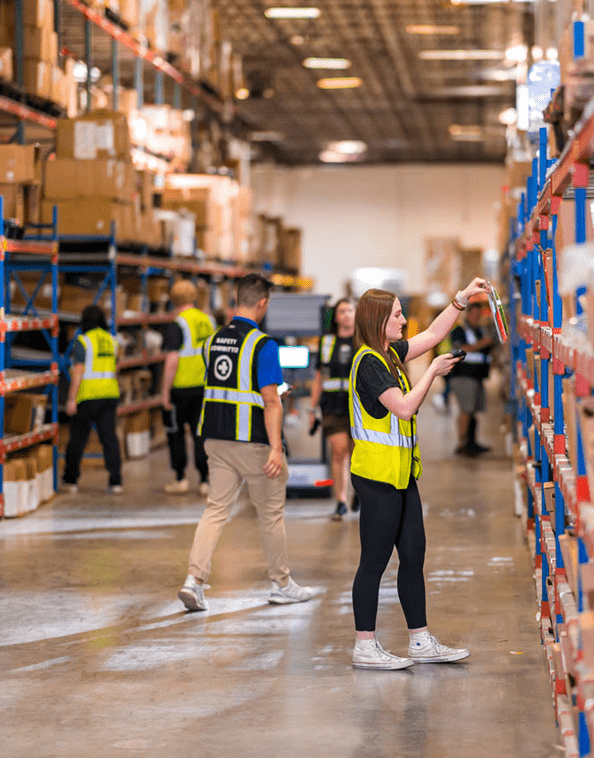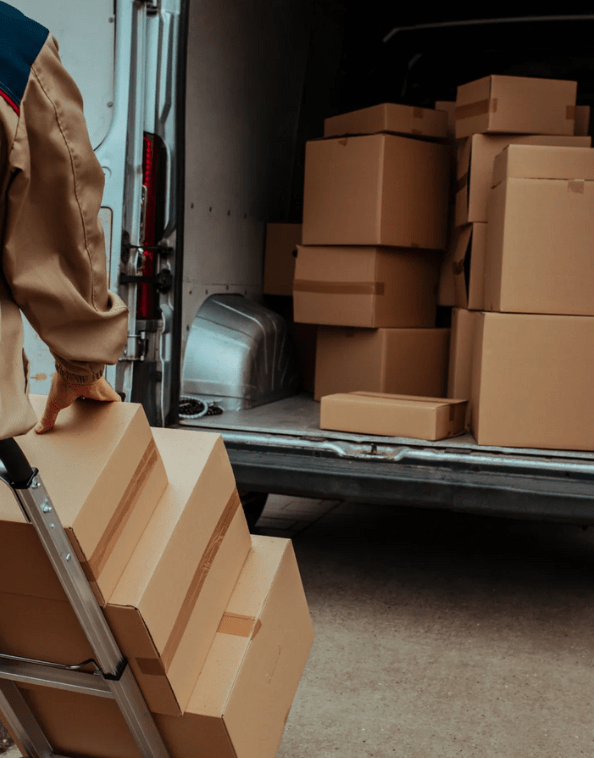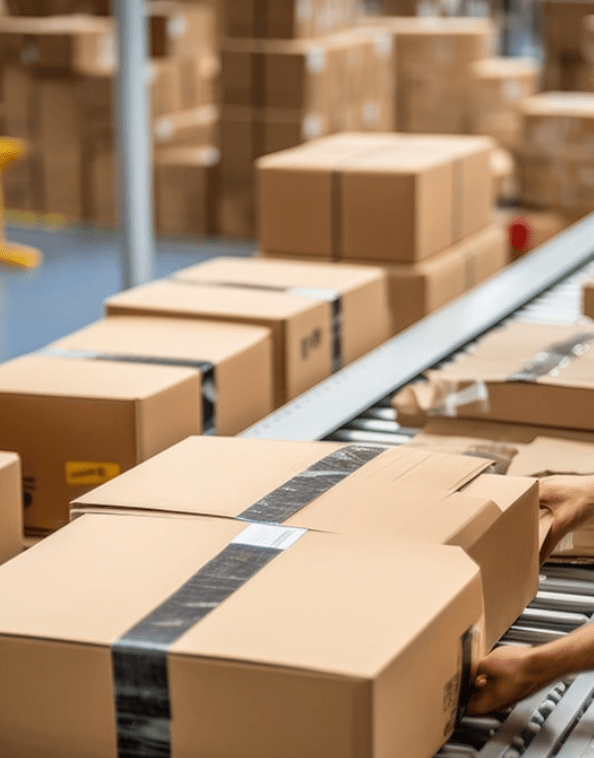Shipping documentation might not be the most exciting part of running an eCommerce business—but it’s one of the most important. Without the right paperwork, your shipments can get delayed, held at customs, or returned to sender—costing you time, money, and customer trust.
Whether you’re shipping domestically or internationally, knowing which shipping documents you need (and when) can help you avoid major headaches. In this guide, we’ll cover the most common documents required for domestic and international shipping, when they apply, and how FulfillMe helps simplify the process for growing eCommerce brands.
Why Shipping Documentation Matters
Shipping documents are legal and logistical records that outline key details about a shipment. They include what’s being shipped, who it’s being shipped to, how it’s transported, and who’s responsible at each stage. These documents are critical for ensuring compliance with customs regulations, providing proof of ownership or sale, speeding up border clearance, reducing the risk of lost or delayed shipments, and avoiding penalties, fines, or rejected goods. Failing to include the right documents—or filling them out incorrectly—can stop your product in its tracks. That’s why even if you’re using a 3PL like FulfillMe, it’s worth understanding the basics.
The Most Common International Shipping Documents
International shipping involves a higher level of scrutiny from customs authorities. You’ll need to provide more detailed documentation than you would for domestic orders. Here are the most commonly required international shipping documents:
Proforma Invoice
This is typically the first document sent in the shipping process, especially for international orders. It’s a preliminary bill of sale that outlines the goods, their value, and the terms of sale. It’s used for customs pre-approval before the transaction is finalized.
Commercial Invoice
Once the transaction is finalized, the commercial invoice is issued. It’s the most important document for customs clearance and serves as proof of sale. It includes seller and buyer details, item descriptions, pricing, Incoterms, and country of origin. Customs authorities use this to assess duties and taxes.
Export Packing List
The packing list complements the invoice by detailing everything inside each package, including weights and dimensions. Freight carriers and customs brokers use this to verify the shipment and ensure everything matches the invoice.
Certificate of Origin
Some countries require this document to verify that goods were manufactured in a particular country. It can affect tariffs and determine whether goods qualify for free trade agreements. It’s typically issued by a chamber of commerce.
Certificate of Free Sale
This certifies that the goods are legally sold in the country of export. It’s required for certain regulated goods like cosmetics, health supplements, or food products.
Shipper’s Letter of Instruction (SLI)
This optional document gives your freight forwarder or carrier instructions on how to handle your shipment. It includes routing preferences, billing details, and contacts in case of delays or issues.
Inland Bill of Lading
If your shipment is moving by truck or rail before reaching the port or airport, the inland BOL is your transport contract and proof of shipment.
Ocean Bill of Lading / Air Waybill
These are the main transportation contracts for international freight. An ocean BOL is used for sea shipments, and an air waybill is used for air shipments. Both outline carrier responsibilities and serve as proof of receipt and delivery.
Letter of Credit (if applicable)
Used mainly in large or complex international transactions, a letter of credit guarantees the seller will be paid once certain conditions are met. It adds a layer of security to protect both parties in a high-value shipment.
Required Documents for Domestic Shipping
Domestic shipping is simpler, but documentation is still required for legal, tracking, and operational reasons. Here are the essentials:
Bill of Lading (BOL)
This is your core shipping document and serves as a contract between the shipper and carrier. It includes the type and quantity of goods, delivery address, and carrier responsibilities.
Packing List
The packing list outlines every item in the shipment. It helps your team, fulfillment center, or recipient verify that the correct items were included.
Commercial Invoice
While not always legally required for domestic shipments, it’s a good practice to include a commercial invoice for record-keeping and customer clarity.
Additional Documents for Special Goods
Some types of products—especially dangerous or regulated goods—require additional paperwork.
Dangerous Goods Declaration
Required if you’re shipping items that are flammable, explosive, or otherwise hazardous. This document confirms the goods are packaged and labeled in accordance with safety regulations.
Emergency Response Guide
Often included with hazardous materials, this guide outlines steps to take in case of accidents during transportation.
How FulfillMe Simplifies the Shipping Documentation Process
Managing all of these documents manually can be overwhelming, especially as you scale. FulfillMe automates the shipping documentation process for both domestic and international orders. Whether you’re fulfilling Shopify, Amazon FBA, or DTC orders, our platform auto-generates the right paperwork based on product type, shipping destination, and carrier requirements.
FulfillMe automatically creates packing lists and bills of lading, pre-fills customs documents for international shipments, handles FBA prep requirements, flags any products requiring special paperwork, and keeps shipments moving smoothly across borders. Our logistics platform is connected to a network of experienced carriers, customs brokers, and compliance professionals—so you don’t have to stress about delays or rejected shipments.
One seller shipping alcohol products internationally told us that FulfillMe’s distributed fulfillment network and documentation support helped them bypass major customs delays that used to disrupt their operations every month.
Final Thoughts
Shipping documentation might feel like a behind-the-scenes task, but it directly affects your delivery timelines, customer experience, and bottom line. Whether you’re selling in your home country or expanding globally, having the right shipping documents makes all the difference. And with FulfillMe, you don’t have to figure it all out yourself. We manage the paperwork so you can focus on growing your brand.
Ready to simplify shipping? FulfillMe stores, packs, and ships your products—complete with all the necessary documentation—so you can stay focused on sales, not customs forms.
Frequently Asked Questions
Do I always need a commercial invoice?
Yes, for international shipments. For domestic orders, it’s often used for recordkeeping and customer clarity.
What’s the difference between a bill of lading and a waybill?
A bill of lading can act as a contract and title document. A waybill cannot be used to transfer ownership and is typically used for air cargo.
What happens if a required document is missing?
Your shipment could be delayed, held at customs, or returned to sender. It might also incur fines or extra handling fees.
Can FulfillMe generate customs paperwork for FBA shipments?
Yes. FulfillMe’s FBA prep service ensures that shipments have all necessary documentation for smooth Amazon delivery, including cross-border compliance.







